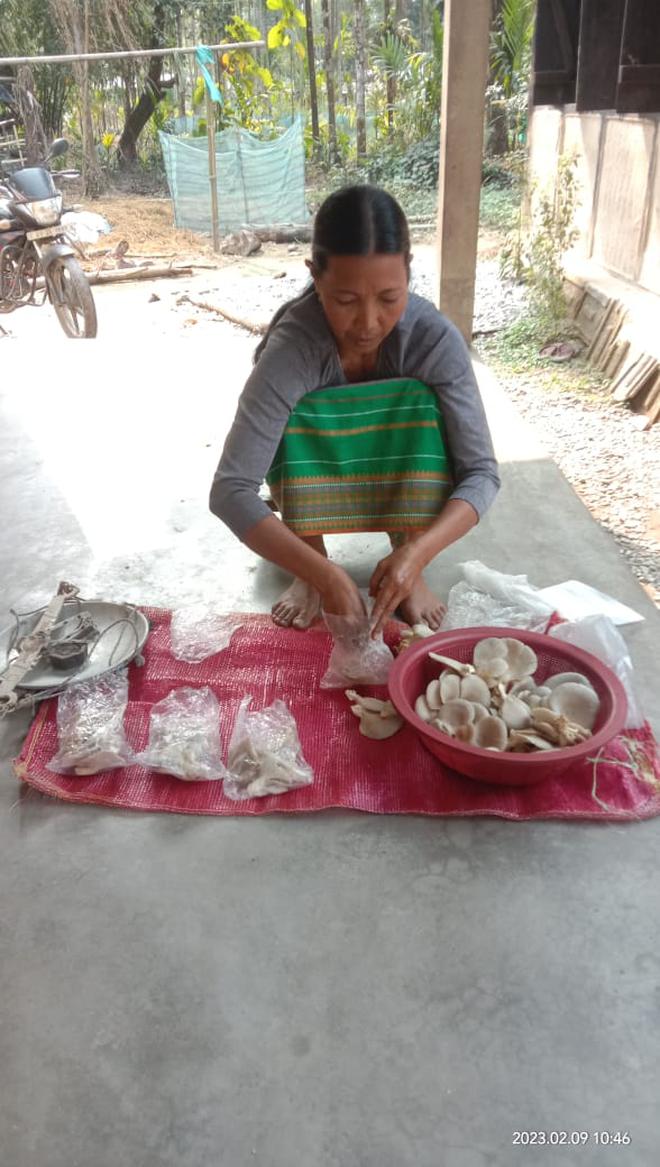Nutrient-loaded mushrooms introduced into the midday meals in western Assam’s Kokrajhar district, as soups, biscuits, fortified noodles, or mixed with regular food in powdered form, appear to have had a positive nutritional effect on children in schools.
Mushrooms were one of the major ingredients introduced for children and mothers, in addition to vitamin and mineral supplementation.
Also read | Bodoland University develops fungal powder to boost immunity
Data provided by the district authorities revealed that the number of underweight (up to 6 years), wasted, and anaemic children in Kokrajhar district reduced by 56%, 55%, and 76% from 2021 to 2023.
The maternal mortality rate also decreased in the district by 72.37% to stand at 89.79 per lakh live births, less than half of Assam’s average of 205. Similarly, the infant mortality rate decreased by 30.56% to 15.97 per 1,000 live births (the State’s average is 36).
The results — riding on a team of Anganwadi workers, accredited social health activists (ASHA), and field workers of departments such as education, health, and horticulture — did not come overnight.
Origin and development
The seeds of the transformation were sown by Bodoland University’s Department of Biotechnology in 2012. Its experiments on making 23 species of mushrooms such as oyster, shitake, and cordyceps economically viable and affordable, made many farmers start cultivation in their backyards, sometimes even under beds.
Its farming received a big push when the Bodoland Territorial Council (BTC) launched the Mushroom Mission in 2021, the year when the local administration had the primary product of Kokrajhar changed from Eri silk to mushroom under the Centre’s ‘one district one product’ (ODOP) initiative.
“Practically nothing was being done on Eri. Stakeholders voted for mushroom given its potential to engage the masses, its nutritional benefits, low input cost, and ease of handling by women,” Kokrajhar’s Deputy Commissioner Varnali Deka said.

More than 21,500 mushroom cultivators, including members of 503 self-help groups, are women. “The mission was aimed at ensuring livelihoods at home so that our youth, including girls, do not migrate for low-pay and hazardous jobs that hardly sustain their families,” BTC’s chief executive member Pramod Boro told The Hindu. “We saw a future in the ground-breaking work on mushrooms done by Bodoland University and there was no looking back.”
Tackling farm waste
What attracted the women to mushroom farming was the high returns on low investment; they earn up to ₹400 per bag of moistened hay for an input cost of ₹35. A crop takes about 23 days to mature and each bag can be utilised four times. Growing mushroom is also not labour-intensive.
The “mushroom movement” has also helped people deal with 0.16 million tonnes of farm waste (rice, wheat, and maize residue) compressed into layered bags for growing the mushrooms. After these bags stop producing, they are turned into vermicompost.
“Mushroom farming is a process of recycling and utilising biodegradable waste,” Sandeep Das of the university’s Science and Technology faculty said. He also heads the centrally-funded Technology Incubation Centre where the mushroom revolution germinated more than a decade ago.
The synergised model involving the BTC authorities, the district administration, the university, and other stakeholders have made the likes of Ansuli Narzari, Basonti Hembrom, and Dilmuni Kujir think of upscaling production to go beyond feeding the local market. They are members of the Bodoland Farmer Producer Company (FPC) Limited, the first such entity in the northeast specialising in mushroom and mushroom derivatives.
Some 98% of the 526 members of the FPC from 26 villages are women. “We produced 26,000 kg of mushrooms within five months of forming the FPC in October 2022. We are now eyeing the export market,” FPC chairman Paritran Narzary said.
The district administration facilitated the export of 220 kg mushrooms, sourced from individual farmers, to Bhutan where the demand is high but conditions are not suitable for growing them unlike in Kokrajhar.
Among other developments, ODOP has seen 16 schools in the district taking up mushroom farming in their nutrigardens along with an array of vegetables. It has also helped revive the mushroom spawn labs in 11 government-run senior secondary schools across the Bodoland Territorial Region that were set up under a three-year Department of Biotechnology scheme in 2015.







